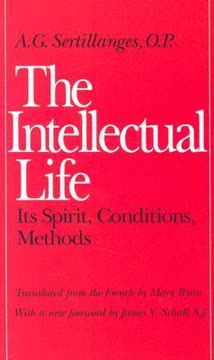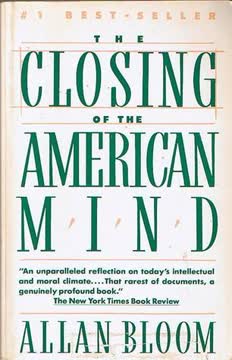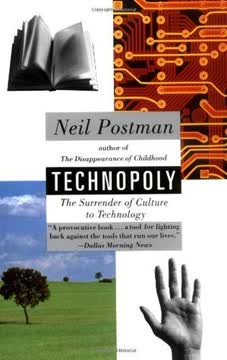Key Takeaways
1. The West's decline stems from abandoning transcendentals and objective truth.
The defeat of logical realism in the great medieval debate was the crucial event in the history of Western culture; from this flowed those acts which issue now in modern decadence.
A fallen state. Weaver argues that Western civilization is in a state of profound dissolution, not due to inevitable forces, but to "unintelligent choice." This decline is a direct consequence of abandoning belief in transcendent principles and objective truth, leading to a loss of a rational scale of values and a pervasive "moral idiocy" in modern man.
Macbeth's evil decision. The pivotal moment occurred in the late fourteenth century with the attack on universals, specifically William of Occam's doctrine of nominalism. This philosophical shift denied the real existence of universals, reducing universal terms to mere names and effectively banishing truth higher than human experience. It was a decision akin to Macbeth's, setting in motion a chain of evil consequences.
Relativism's abyss. The practical result was a descent into relativism, where "man the measure of all things" became the norm. This cut humanity off from fixed truth, fostering a sense of alienation and leading to a world that has "lost its its center," desiring belief in value and obligation but unwilling to realize how it lost its belief or face what it must accept to regain faith in an order of goods.
2. Nominalism, denying universals, is the root cause of modern decadence.
The denial of universals carries with it the denial of everything transcending experience. The denial of everything transcending experience means inevitably—though ways are found to hedge on this—the denial of truth.
Truth's erosion. Weaver pinpoints nominalism as the "fateful doctrine" that initiated the West's decline. By asserting that universals are mere names, it severed the link between language and objective reality, paving the way for a world where truth itself becomes relative and ultimately denied, leaving man with only sensory perceptions as reality.
Chain reaction. This initial philosophical error triggered a cascade of consequences, fundamentally reorienting culture:
- Nature became a self-operating mechanism, not an imperfect reality imitating a transcendent model.
- The doctrine of original sin was abandoned, leading to the corollary of man's natural goodness.
- Rationalism was elevated, focusing on interpreting sensory data rather than seeking ultimate purpose.
- Deism, materialism, and psychological behaviorism followed, reducing man to an environmentally molded, wealth-seeking, and consuming animal devoid of free will.
Abysmality. The cumulative effect is a state of "abysmality," where man lives "practice without theory," overwhelmed by problems and meeting them with ad hoc policies. He secretly hungers for truth but consoles himself with experimentation, his institutions crumbling as he rationalizes with talk of emancipation, having lost the capacity to distinguish between better and worse.
3. Society is disintegrating due to the obliteration of distinctions and hierarchy.
For, if the proscription against every kind of distinction continues, there is no hope of integration except on the level of instinct.
Obliteration of distinctions. Weaver argues that the most "portentous general event" of our time is the steady obliteration of distinctions essential for society. Rational society, mirroring the logos, requires formal structure and hierarchy, which are being destroyed by an "undefined equalitarianism" that threatens to reduce human relationships to the level of instinct.
Equality vs. fraternity. This equalitarianism, often presented as a redress of injustice, is actually "the very opposite." It replaces the ancient concept of fraternity—which implies hierarchical obligations, respect, and protection—with a focus on self and rights.
- "Equality is a disorganizing concept in so far as human relationships mean order."
- It creates "poisonous envy" and increases suspicion and hostility.
- It leads to a society where "leaders will not lead, and servants will not serve."
- It confounds natural social groupings and creates a reservoir of resentment.
Despotism's rise. The demand for equality of condition, rather than merely equality before the law, is unrealistic and can only be enforced by despotism. This explains why modern governments dedicated to this program become authoritarian. The "ladder to all high designs" is removed, leading to a "carnival of specialism, professionalism, and vocationalism" in education, and ultimately, a society organized around "capacities to consume" rather than knowledge or virtue.
4. Specialization and obsession with fragments lead to psychological and moral decay.
Men so obsessed with fragments can no more be reasoned with than other psychotics, and hence the observation of Ortega y Gasset that the mere task of saving our civilization demands “incalculably subtle powers.”
Flight to periphery. The cultural shift from unity to individualism, from center to periphery, has led to a "severe fragmentation of his world picture." The philosophic doctor, master of principles, was displaced by the gentleman, then by the specialist, who is "inferior psychically to his predecessors" and lacks a general view of the relationship of things.
Fanaticism and instability. This obsession with isolated parts results in fanaticism—"redoubling one’s effort after one’s aim has been forgotten"—and emotional instability. The modern knower, having lost hold on organic reality, clings to "discovered facts," believing salvation lies in objective verification, but never making larger judgments.
- The "astonishing vogue of factual information" replaces true knowledge.
- "Distrust of generalization" supplants the former distrust of specialization.
- This leads to a "phobia toward simple predication," fearing any statement that implies value or division.
Ethical eunuch. Industrial and political organization, through minute division of labor, makes the citizen an "ethical eunuch," absolved of responsibility and unable to grasp the ethical implications of his task. The atomic bomb project, where seventy thousand people labored without knowing its purpose, exemplifies this enforced irresponsibility, leading to a sense of helplessness and panic when true thinking is required.
5. The "Great Stereopticon" (mass media) indoctrinates a superficial, materialistic worldview.
The vested interests of our age, which, from all kinds of motives, desire to maintain traditional values or to get new values set up in their place, have constructed a wonderful machine, which we shall call the Great Stereopticon.
Controlled reality. The Great Stereopticon—comprising the press, motion pictures, and radio (and by extension, modern media)—is a machine designed to project "selected pictures of life" for imitation. It replaces shared belief with systematic indoctrination, presenting a version of reality "quite as controlled as that taught by medieval religionists, though feeble in moral inspiration."
Distortion and superficiality. Journalism thrives on conflict and sensationalism, distorting truth and minimizing discussion through display techniques and "stereotyping of whole phrases" to evoke stock responses. Movies promote "egotistic, selfish, and self-flaunting" heroes and heroines, and a "complacent assertion of the virtues of materialist society." Radio broadcasts a "farrago of nonsense," collapsing values and presenting chaos in a "curious monotone" of "cheery confidence."
Psychopathic dream. The Stereopticon's fundamental harm lies in its promotion of a "sickly metaphysical dream." It insists on the dogma of progress, equates happiness with comfort, and discourages "breaking through to deeper significances." This keeps the public insulated from reality, fostering a "bourgeois mentality" that is "psychopathic in its alienation from reality," ultimately leading to low political morality and a "hatred of the past."
6. A "spoiled-child psychology" fosters entitlement and aversion to discipline.
The spoiled child has not been made to see the relationship between effort and reward. He wants things, but he regards payment as an imposition or as an expression of malice by those who withhold for it.
Entitlement and unreasonableness. Modern man, taught that redemption comes through conquering nature and that happiness is easily attained, develops a "spoiled-child psychology." He expects a "right to have happiness" and blames individuals for problems inherent in the human condition, having never been taught the value of discipline and struggle.
Urban insulation. This spoiling begins with urban living, which fosters a "false self-sufficiency" and forgetfulness of nature's mysteries. Science reinforces this by suggesting man is "exempt from labor," leading to the belief that "the world owes him a living." This extinguishes the idea of mission and replaces it with "egregious self-pampering and self-disgust," as man no longer feels compelled to translate potential into actual.
Softness and defeat. The worship of comfort, a "most reliable sign of present or impending decay," replaces heroism and masculine virtue. This softness makes Western people ill-prepared for political struggle against dynamic ideologies like Soviet communism, which embrace struggle. The attempt to make military service attractive with benefits is a "bribing the child with candy," revealing a fundamental failure of discipline that invites the "tyranny of force."
7. Private property is the last metaphysical right, crucial for liberty and virtue.
The right of private property, which is, in fact, the last metaphysical right remaining to us.
Metaphysical anchor. As a rallying point for restoration, Weaver identifies private property as the sole remaining metaphysical right, independent of social usefulness. It represents the "hisness of his," removing it from contention and providing a "sanctuary" against the sophistries of relativists and the encroaching "pagan statism."
Distributive ownership. Weaver distinguishes this from finance capitalism, which, through "abstract property of stocks and bonds" and "anonymous ownership," actually violates the notion of proprietas and abets state control. The moral solution is "distributive ownership of small properties"—independent farms, local businesses, owner-occupied homes—where individual responsibility and volition can flourish.
- Provides a range of volition for a complete person.
- Abridgment of this volition by monopoly capitalism is condemned.
- Offers protection against an otherwise omnipotent state.
Virtue and freedom. Private property is crucial for liberty and the training of virtue, as it provides an area of volition where one can be a "complete person." It encourages providence, foresight, and a sense of honor, protecting against the "adulteration" of value seen in inflation and anonymous commerce. It stands as a "single breach in monism or pragmatism," essential for the cause of values and a bulwark against the state's attempt to treat man as a mere biological unit.
8. Language corruption reflects societal decay, demanding its urgent rehabilitation.
The corruption of man is followed by the corruption of language.
Divine element in language. Language, historically seen as having a divine element and being the "principle of intelligibility," is under assault. The impulse to dissolve everything into sensation has attacked the forms of discourse, which provide discipline and fixed predications, essential for a metaphysical community.
Semantics and atomization. Modern semantics, an "extreme outgrowth of nominalism," views language as an obstruction to a "changeful reality." It seeks to strip words of "tendentious meaning" and "inclination," leading to an "atomization" of language that destroys its essence and teleology.
- Semanticists are "impressed with the world as process."
- They question how "fixities of language can represent a changeful reality."
- They aim to remove "inclination" from language, believing it will enable scientific manipulation.
Loss of meaning. The result is a breakdown of communication, where words like "democracy" and "freedom" acquire contradictory meanings. This "easy divorce between words and the conceptual realities" leads to "looseness and exaggeration," especially in times of conflict, where distortion becomes the norm. Rehabilitation requires a "twofold training" in literature/rhetoric (for evocative power and sentiment) and logic/dialectic (for definition and clarity), restoring language as a "storehouse of universal memory."
9. Piety—respect for nature, others, and the past—is essential for justice and harmony.
Piety is a discipline of the will through respect. It admits the right to exist of things larger than the ego, of things different from the ego.
The sin of impiety. Modern man is "impious," having taken up arms against what former men regarded with "filial veneration." This "parricide" against the order of nature, driven by egotism and a desire for "unconditional victory," denies the fundamental goodness and mystery of creation, believing that happiness requires an "unrelenting assault" upon this order.
Three forms of piety. Restoration requires piety towards:
- Nature: A respectful nonattachment, acknowledging its inherent order and substance, rather than warring upon it. The countryman's "superior philosophic resignation" contrasts with the city-dweller's flight from reality.
- Our Neighbors: Crediting the "substance of other beings" and their right to exist qua being. This is the foundation of human community and true tolerance, contrasting with the barbarian's destruction of difference and the neurotic's need for control.
- The Past: Acknowledging that history is not an "unfortunate inheritance" but a determinant of present actions. It provides an antidote to egotism and shallow optimism, teaching caution about man's perfectibility and the lawfulness of past events.
Justice and humility. Piety is part of justice, rendering to each its due. Modern civilization, having lost this sense of obligation, suffers from "feeble affirmations." The modern contempt for "pious" individuals reflects a pride and impatience that denies substance and resists discipline. A profound change in the world picture is needed, one that recognizes dependence on the universe and the necessity of humility.
10. Restoration requires metaphysical dualism, discipline, and a willingness to pay the price.
The task is how to keep men from feeling desperately unrewarded. Do they today wish to go on living, or do they wish to destroy the world?
The path to healing. Restoration demands two postulates: man can both know and will. The first step is to "drive afresh the wedge between the material and the transcendental," re-establishing dualism and denying that "whatever is, is right." This metaphysical rightness is the rock upon which a renewed civilization must be built, offering relief from the "seasickness" of relativism.
Discipline and sacrifice. The "spoiled-child psychology" of modern man, expecting happiness without effort, must be overcome. This requires accepting that the "law of reward is inflexible" and that comfort is a seduction. The West must choose "the rule of hardness and discover means of discipline" to survive the challenge of dynamic ideologies.
- Comfort is a "seduction."
- Material prosperity must be "pushed aside in favor of some sterner ideal."
- Accepting duties must precede talking of freedoms.
The price of peace. Like Clemenceau's challenge at Versailles, true restoration comes at a price: a profound reformation involving sacrifice, self-denial, and a re-evaluation of priorities. If modern civilization truly wishes to survive, it must confront its "suicidal impulse" and the "bitterness" born of lost belief, embracing a "passionate reaction" that re-inspires ideals and prepares for a "great change."
Last updated:
Review Summary
Ideas Have Consequences is a thought-provoking and controversial book that analyzes the decline of Western civilization. Weaver argues that the shift from philosophical realism to nominalism in the 14th century led to moral relativism and societal fragmentation. He critiques modern society's focus on materialism, egalitarianism, and instant gratification. While some readers find his arguments insightful and prophetic, others criticize his elitist and conservative views. The book is praised for its dense prose and challenging ideas, but also criticized for its dated references and dismissive attitude towards certain cultural elements.
Similar Books
Download PDF
Download EPUB
.epub digital book format is ideal for reading ebooks on phones, tablets, and e-readers.












